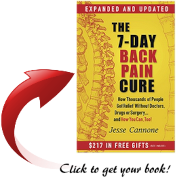On previous articles, we got an overview of what psychogenic pain is, and how emotions can be a trigger for physical pain. We also looked into the various strategies for managing psychogenic pain. In today’s article, I want to talk about sunlight, and how it can have a significant impact on your emotional well-being and pain relief. And before we dive in, I want to make sure that you know that I am not a medical professional, and what follows is not medical advice. I am just a guy on the internet who enjoys researching these types of topics and providing information that may be of interest to you.

Image by jannoon028 on Freepik
Here’s some information on the subject:
Sunlight and Emotional Well-being:
- Mood Elevation: Exposure to sunlight is associated with improved mood and emotional well-being. This effect is primarily attributed to the release of serotonin in the brain. Serotonin is a neurotransmitter (i.e., a brain chemical) known as the “feel-good” chemical, and increased levels of serotonin are often linked to reduced feelings of depression and anxiety. Sunlight exposure, especially during the morning hours, can boost serotonin production and help individuals feel happier and more relaxed.
- Circadian Rhythms: Exposure to natural light helps regulate our circadian rhythms, which are essential for maintaining a healthy sleep-wake cycle. Properly synchronized circadian rhythms can improve sleep quality and overall emotional well-being.
- Seasonal Affective Disorder (SAD): Sunlight plays a crucial role in combating Seasonal Affective Disorder, often referred to as “winter depression.” SAD typically occurs during the fall and winter months when there is less daylight. Light therapy, which involves exposure to bright artificial light that mimics natural sunlight, is a common treatment for SAD and has been shown to alleviate its symptoms by regulating circadian rhythms and boosting mood.
- Vitamin D and Cognitive Function: Sunlight is a natural source of vitamin D, which has been linked to cognitive function and mental well-being. Adequate vitamin D levels are associated with better cognitive performance and a reduced risk of cognitive decline, which can help maintain emotional health as individuals age. Vitamin D deficiency has also been linked to mood disorders like depression and anxiety.
- Stress Reduction: Spending time outdoors in the sun can lead to reduced stress levels. Natural environments, coupled with sunlight, have a calming effect on the mind. Activities such as taking a leisurely walk or practicing mindfulness in a sunny outdoor setting can significantly reduce stress and anxiety.
Sunlight and Pain Relief:
- Pain Management: Sunlight can have a positive impact on pain relief, especially for individuals with chronic pain conditions. The heat from the sun can relax muscles and alleviate tension, providing temporary relief. Moreover, exposure to sunlight may distract from pain sensations and improve overall comfort.
- Endorphin Release: Sunlight exposure triggers the release of endorphins, the body’s natural painkillers. Endorphins not only promote a sense of well-being but also reduce the perception of pain. This is why spending time in the sun can lead to feelings of relaxation and even euphoria.
- Improved Sleep: Sunlight exposure helps regulate the body’s circadian rhythms, which in turn can improve sleep quality. Restorative sleep is essential for pain management as it allows the body to heal and recover. People experiencing chronic pain often find that better sleep patterns resulting from sunlight exposure can help them cope with pain more effectively.
- Psychological Benefits: Sunlight has psychological benefits for individuals dealing with pain. It can enhance overall mood and mental well-being, making it easier to cope with discomfort. A positive mental state can reduce the perception of pain and improve an individual’s ability to manage their condition.
While sunlight offers numerous benefits for emotional well-being and pain relief, it is crucial to enjoy it responsibly. Prolonged and unprotected exposure to the sun’s harmful ultraviolet (UV) rays can lead to skin damage and increase the risk of skin cancer. Therefore, it is essential to strike a balance by enjoying sunlight in moderation and taking precautions such as wearing sunscreen and protective clothing when necessary.

Individual responses to sunlight may vary, so it is advisable to consult with a healthcare professional for personalized guidance, especially if you have specific medical conditions or concerns related to emotional well-being or pain management.
To Your Success & Freedom,
Glenn Shimabukuro



